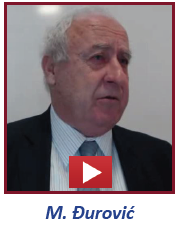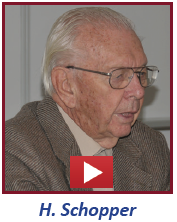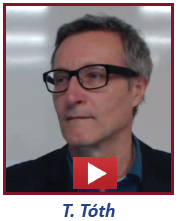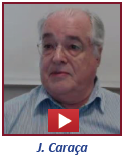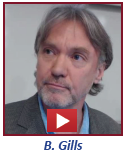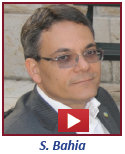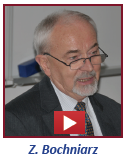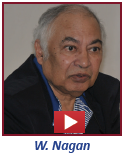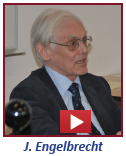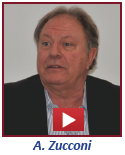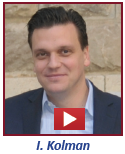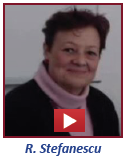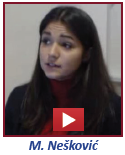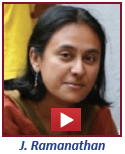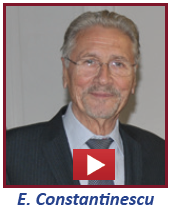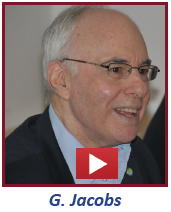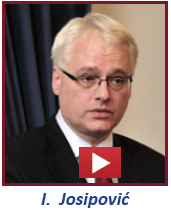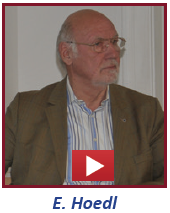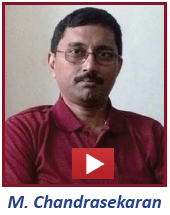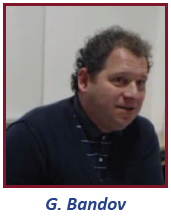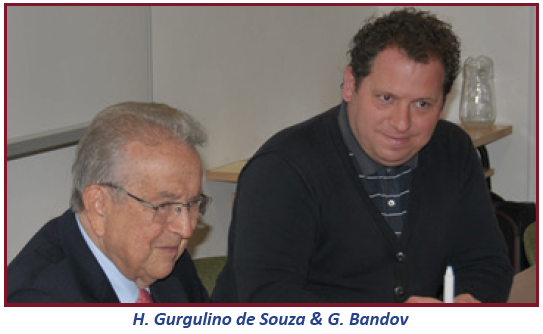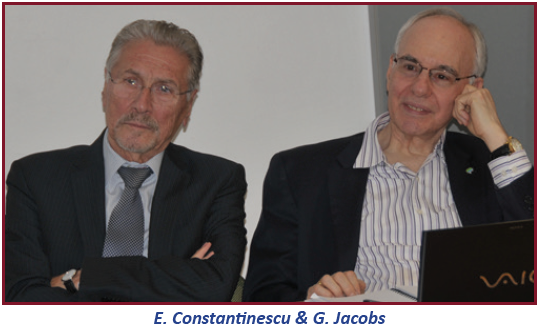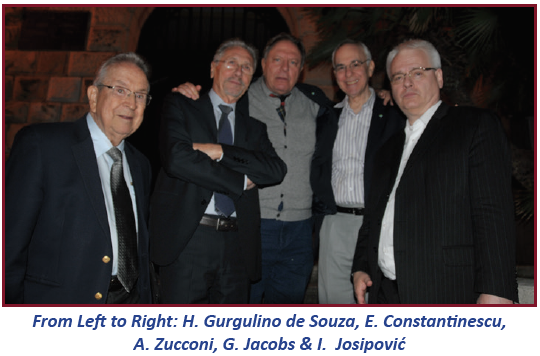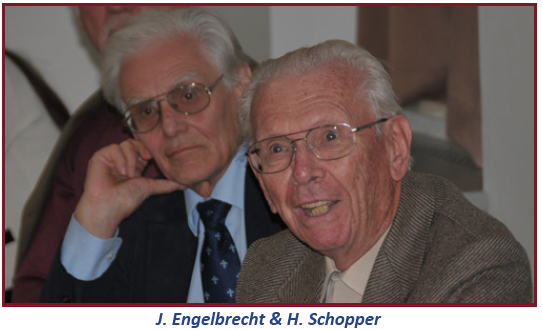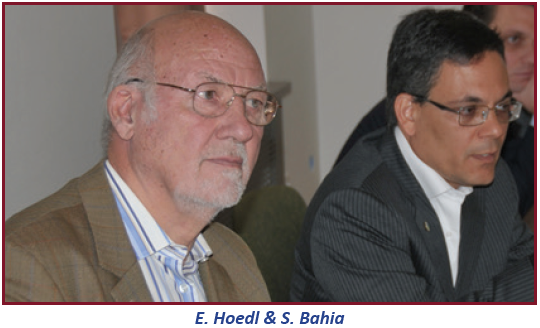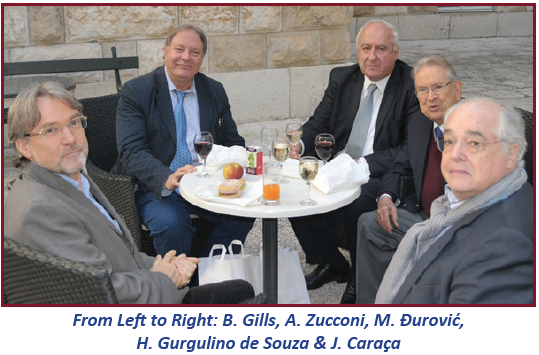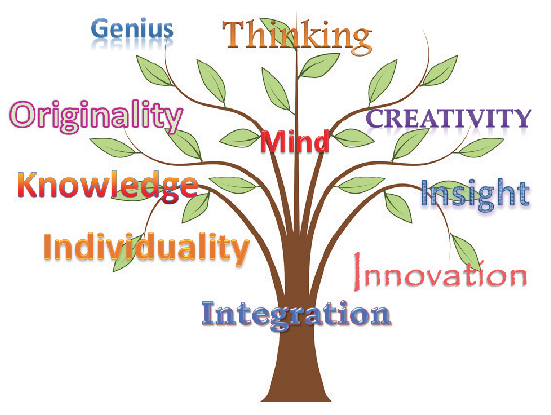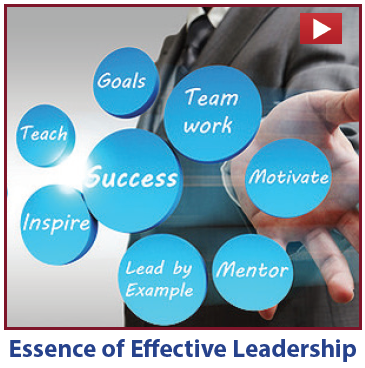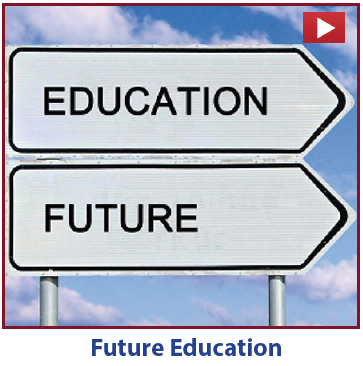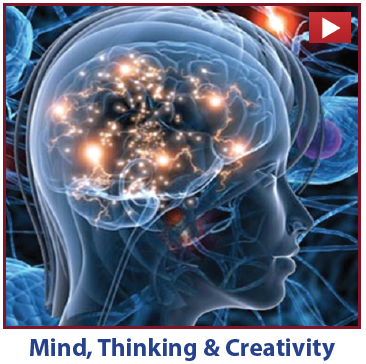Newsletter - December 2016
Click here to download the PDF version of the Newsletter
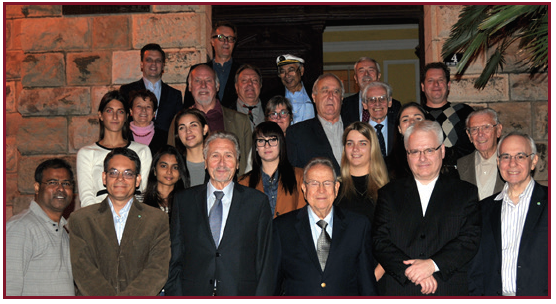
Crises are opportunities. It is only at moments of intense crises that humanity releases revolutionary energies. These energies break existing institutions, channel energy in new directions and create higher structures of social organization. When energy is organized according to progressive higher values, it results in social evolution. How can we accelerate this process in a timely manner, without waiting for the explosion of the pent up social energies? To answer this question and address issues related to society and social power, World University Consortium (WUC) co-organized a lecture series, in collaboration with the World Academy of Art and |
Science (WAAS); Dag Hammarskjöld University College of International Relations and Diplomacy (DHUC), Croatia; Inter-University Center (IUC), Croatia; Person-Centered Approach Institute (IACP), Italy and The Mother’s Service Society (MSS), India. Held at IUC, Dubrovnik, Croatia from Oct 31-Nov 2, 2016, this event was the sixth in a series of PG roundtable seminars co-organized by WUC. The process of the generation and expression of social power is fundamental to all human activities and to social development. The Social Power Lecture Series explored the sources, expressions, determinants and consequences of the creation, distribution and exercise of social power. The course directors were Garry Jacobs, CEO, WUC; Alberto Zucconi, President, IACP, Italy; Winston Nagan, Professor of Law, University of Florida, Gainesville; and Goran Bandov, Vice Dean, DHUC, Zagreb. Heitor Gurgulino de Souza, President of WUC inaugurated the event. Faculty members consisted of present and former heads of academic, research, diplomatic and political institutions from around the world. Recording of the entire program is available on Youtube, and interested participants can apply for a certificate of participation by contacting the WAAS administrative team. |
||||||||||||||||||
INSIDE THIS ISSUE |
|||||||||||||||||||
|
SOCIAL POWER LECTURE SERIES, DUBROVNIK FUTURE EDUCATION RECENT TRENDS |
Coursera adopts monthly subscription model INTERVIEW WITH DR. RAJ RAGHUNATHAN UPCOMING EVENTS |
||||||||||||||||||

|
|||||||||||||||||||
|
We have created formal social structures by channelling powerful energies over centuries. These structures meet the needs of creation and sustenance of a stable secure society. Today, we see unprecedented capacity for accomplishment in every field of social life. Never before has humanity possessed social power of this magnitude. Never before has power been so widely distributed within society. The average citizen today enjoys freedom, privileges, comforts, and conveniences unavailable even to the wealthiest and most powerful in earlier centuries. At the same time, humanity also faces multi-dimensional challenges. These challenges have shaken the entire global world order. They challenge prevailing ideology in politics and economics. These threats defy solution by any of the traditional piecemeal methods. But if crises are opportunities, today we are presented with the greatest opportunities than ever before. The question is, how can we convert the explosive energies to build structures that never existed before at levels of social reality where society has never been organized before? Where can we find the power, capacity and knowledge needed to address these challenges effectively? That was the overriding question behind the Social Power Lecture Series. The event examined the different forms in which power develops and acts, including military, government and political parties, law, commerce, communication, transportation, media, religion, technology, science and education. It also studied the process by which social potential develops, gets organized and channeled for social progress, as well as the process by which power is usurped or |
diverted for the benefits of smaller elites. The practical aim of the program was to identify ways in which the enormous untapped and underutilized social potential can be more fully converted into effective power to address pressing global challenges and enhance human security, development, welfare and well-being. After years of research and discussion, WUC has concluded that the world needs a new way of thinking and a new paradigm of social development. New policies and institutions are not enough. We need a new conceptual framework to understand the world we live in and what is happening to it. Apart from a change in public policy, responsible private initiative, and effective institutions for global and national governance, we need more—a radical change in the content and pedagogy of education, a new theoretical understanding of the world, a reexamination of the way we use our mind, and the fundamental thought process we employ to analyze and address our problems. Society possesses immense power to accomplish its goals. This power stems from its formal and informal sources of knowledge, human initiative, social organization, institutions, technology and skills. It issues out of interaction, cooperation, coordination and organization among individuals. The capacity of humans to relate to each other, release and channel their collective energy effectively is the source of all the powers of society. They cannot be created by individuals functioning in isolation. Language, currency or communication tools are useful only when they are accepted and used by all. Similarly, individuals wield any power only when they are part of a collective, and tap into this collective power. |
||||||||||||||||||

|
|||||||||||||||||||
|
into money. Money as a social organization has an immense power for social productivity. It is a symbol that represents values. Social and psychological values generate new money. The power of money arises not from any intrinsic value of its own. It arises from the complex social organization which supports its creation and utilization. History shows that concentration of any power in the hands of a small group of people has always resulted in serious imbalance in the society. Our existing economic theories and social paradigms are inadequate to address plutocracy and achieve wider distribution of money. |
The age of imperialism, commercialisation and colonialism and the theory of neoliberal free trade were based on the values of competitive security and competitive prosperity. But these values have brought us to the serious impasse we find ourselves in today. The Social Power Lecture Series concluded that our new social structures require a foundation at a deeper level, at a level of values that are inclusive, cooperative and collaborative. Our ideology needs to be centered not merely on the unregulated market and unbridled freedom for speculation. It must have an inclusive global view that addresses the needs of all human beings as highlighted in the 17 Sustainable Development Goals of the United Nations. |
||||||||||||||||||

|
|||||||||||||||||||
Fostering Innovation and Creativity |
|||||||||||||||||||
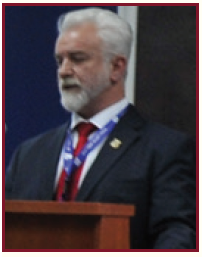 WUC participated in a conference on the theme “Harmonizing Business, Economy and Society” organized by the University of Tourism and Management in Skopje (UTMS) on October 5-6, 2016. Ace Milenkovski, founder and rector of UTMS and Associate Fellow of WAAS, inaugurated. The conference focused on human-centered economic and business strategies with main emphasis on development of human and social capital and fostering innovation and creativity through education. In his keynote address, Garry Jacobs described education as the most sophisticated instrument yet fashioned by society for its own conscious social evolution. Yet, ironically, evolution of the instrument itself lags far behind the evolution of the society it strives to promote. This lag is a natural result of the fact that human progress is largely a subconscious process occurring by trial and error. The prevailing conception of what should be taught and how it should be taught remains mired in the distant past. In an age when information about virtually everything is available at our fingertips, the educational system continues to emphasize transfer of information as its predominant objective. It is time to pause and ask ourselves whether an entirely different conception of education is required. It may sound naive to speak of a revolution in higher education, an institution which in its constitution and mode of functioning has remained immune to alteration by all the revolutions of the past in which it has itself played a crucial role as incubator for disruptive ideas, breakthrough technologies and impatient energies demanding radical change. The institution of higher education |
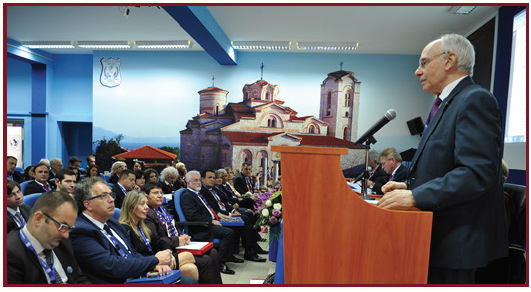
itself is still based on a pedagogy and technology developed centuries ago. Therefore it is wise to recall that even the most visionary failed to conceive in 1995 of what the World Wide Web would become in a mere 20 years. Imagine a global system in which every student can choose from thousands of courses offered by universities around the world and from among the top lecturers in the world on every subject with automatic translation into any language of choice. Imagine a system in which other institutions—research institutes, NGOs, companies, governmental and international organizations—can offer their own expertise and experience as course material through a process of backward integration from live practice to theoretical knowledge in the world’s virtual classroom. Imagine a system in which the often impermeable barriers between the university and society become a porous and dynamic marketplace for continuous exchange of ideas in both directions. To imagine these things is to envision a world in which all individuals have unprecedented opportunity to develop their own capacities for independent thinking, creativity, personality and individuality. It is to envision a human-centered society in place of the technology, money and status-centered society in which we now live—a society which strives to develop and realize the full potential of every human being. That is indeed a dream today, but a dream that can soon be realized. |
||||||||||||||||||
RECENT TRENDSFinland reforms education to prepare children for the future
|
|||||||||||||||||||
 The Brain of the Future |
|||||||||||||||||||
|
The Altius Society at Oxford conducted a high level international conference on “The Brain of the Future” at Oxford University from September 30th to October 2nd, 2016. Carlos Blanco, Associate Fellow of WAAS, is co-founder of Altius and co-organizer of the conference. The event analyzed the impact of Artificial Intelligence from five different perspectives: science & technology, philosophy & the humanities, economics, geopolitics, & urbanism. It expanded beyond the neurobiological organization of the human brain, instead focusing on the need to examine the possibilities and consequences of the development of Advanced Intelligent Machines, the definition of human nature and consciousness, rapid increases of productivity of goods and services, shifts in the structure of our societies & cultures, major disruptions of global commerce & the balance of international power, growing income gaps driven by innovation, security risks posed by AI, & the requirement of a new paradigm of global governance. Speakers included Eric Maskin (2007 Nobel laureate in Economics), Gao Xingjian (2000 Nobel laureate in Literature), Lord Martin Rees (former President, Royal Society), Baroness Neville-Jones (former Director, MI5 and MI6), and many other distinguished participants. |
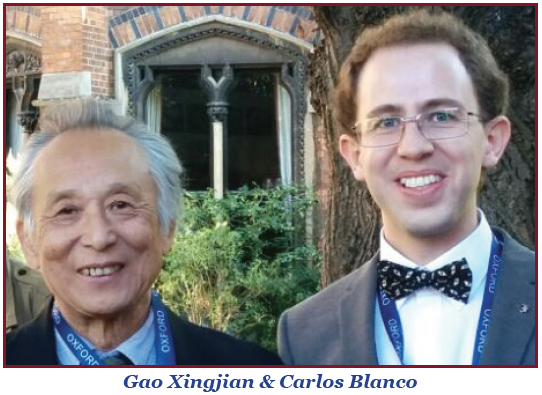
Garry Jacobs, CEO of WUC, presented the conclusions of the WUC-WAAS course on Mind, Thinking and Creativity conducted at Dubrovnik, Croatia last April emphasizing fundamental differences between the character of mental processes being reproduced by computers today and the higher order mental faculties for synthetic, integral, creative and intuitive thinking needed to address the pressing challenges confronting humanity today. |
||||||||||||||||||
RECENT TRENDSMoving from STEM to STEAM in four generations of Massive Open Online Courses: MOOC 4.0
|
|||||||||||||||||||
 Ethical Thinking in Higher Education* |
|||||||||||||||||||
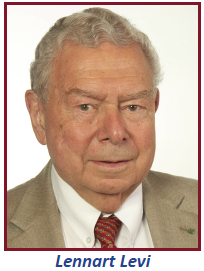 Trust in government is at an all-time low in many countries. In the UK, the Chilcot inquiry and the parliamentary expenses scandal have eroded faith in politicians. Internationally, we have also seen ethically dubious behaviour in the business world, for example in the Panama Papers and the Volkswagen scandal, and in international bodies such as FIFA. All these events have left many people believing that elites lack an adequate ethical compass. There is a perception that current society is deeply unjust because elites are not acting for the common good, but are instead arranging things to benefit themselves and their allies. The behaviour of economic and political elites is central to overall social cohesion. Unless those who lead and carry responsibility for society’s key functions are perceived as honest and trustworthy, general trust in society will also fall. And a fairly high level of interpersonal trust is essential to a well-functioning and prosperous society. These elites have one thing in common: they have almost without exception been trained at leading universities. In other words, there is not necessarily anything wrong with their knowledge, technical competencies and intellectual abilities. Instead, the deficiencies are in their ability to understand and practice ethical behaviour. Some universities and colleges have recently come to realise the importance of this issue. However, the central questions of ethics are either missing or given a very modest role in most higher education institutions. Transparency International estimates that 6bn people live in countries with a serious corruption problem. Internationally, the health sector is particularly hard hit by corruption, from medical personnel requiring bribes to companies who sell fake medicines. One can literally say that many people in the world are dying of corruption. In addition, one of the main reasons that people say they are dissatisfied with their lives is that they perceive themselves to be living under unjust and corrupt public institutions. The |
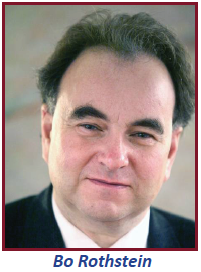 lack of ethics and the prevalence of corruption in the public sector is probably the biggest obstacle to social and economic development. Conversely, one can say that the most important asset of a society is the ethical quality of its public institutions. The American political scientist Francis Fukuyama has argued that it is a “natural instinct” for people with a public position of power to use it to benefit his or her self, family, friends, clan, tribe, allies, co-ethnics or economic interest. To not indulge in favoritism, but to act impartially, in the public interest and in accordance with laws and regulations is, says Fukuyama, something that must be learned. With this in mind, a few years ago we took up the issue with the Compostela Group of Universities, an international network of 68 higher education institutions. We recommended that they adopt a declaration on issues of ethics be included in all subject areas—for example, for doctors, economists, lawyers, teachers, economists, biologists, and so on. Our declaration was unanimously adopted at the network’s General Assembly in Poznan in 2014, and has therefore been named the Poznan Declaration. It has since been supported by many other key organisations, including WAAS and WUC. This initiative is now moving from vision to reality. We therefore urge all universities and colleges to make sure that ethics becomes an integrated part of all their educational programmes. When the next generation of leaders start meeting the challenges and dilemmas they will encounter, we must ensure that they have a working ethical compass. Lennart Levi, Emeritus Professor of Psychosocial Medicine; Fellow, World Academy of Art & Science Bo Rothstein, Professor of Government |
||||||||||||||||||
|
* Originally published in Prospect Magazine on November 18, 2016. RECENT TRENDS |
|||||||||||||||||||
|
Oxford University launches its first MOOC on edX Though MOOC courses have grown in popularity and given access to learning to millions of students around the world, Oxford had not offered MOOCs until now. From February 2017 it will offer an Economics course in partnership with the non-profit MOOC platform edX. |
Coursera adopts monthly subscription model When other MOOC platforms charge for certificates per course, Coursera, one of the leading MOOC platforms, is adopting a monthly subscription model to encourage binge-learning. Earlier experiments with subscriptions made with a small section of students showed a two and a half times rise in the course completion rate. |
||||||||||||||||||

|
|||||||||||||||||||
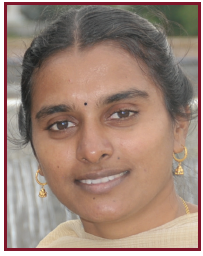 “Some are born great, some achieve greatness, and some have greatness thrust upon them.” Shakespeare’s words can be interpreted to understand the intuitive thinking of Mathematicians. Some Mathematicians like Ramanujan are born with intuitive mathematical skills. His intuition led to pioneering discoveries in various areas of Mathematics, but Ramanujan was never able to explain his thinking process. Henri Poincaré said, “It is by logic that we prove, but by intuition that we discover”. He believed that intuition provides a foundation for all of mathematics, and claimed that logic, which alone can give certainty, is the instrument of demonstration while intuition is the instrument of invention. He proposed a conjecture in 1904 that defines the shape of the universe that we live in. Grigori Perelman worked on Poincaré’s conjecture for eight years and solved one of Math’s greatest mysteries. He was awarded the Fields Medal in 2006. He declined all awards and prizes as he was not interested in money or fame and said that his efforts were no greater than that of Richard Hamilton, who pioneered to solve the Poincaré conjecture. Perelman is a genius not just on account of his thinking skills, but also for his values—honesty, integrity and hard work. By making students understand the complementarity of logical and intuitive thinking, we can effectively make them original thinkers. When students can passionately view numbers as their friends, they will be addicted to learning the seemingly abstract entities. Kalid Azad, author of “Math, Better Explained: Learn to Unlock Your Math Intuition”, built a concrete method to teach abstract and complex mathematical concepts. He says that giving a context before detailing the principles and using analogies, diagrams and examples are efficient ways for better understanding and retention. Man created symbols to represent reality which helped to enchance thought process and communication. Symbolic thinking is utilitarian and helps in understanding higher levels of abstraction as well. Math is a language and we should develop an ear for the language, not just cram the symbols and rules. Describing number zero as the neutral zone where positive and negative forces cancel each other out or as the notion of non-doing adds meaning to the context. Kalid Azad says that unless you are comfortable in communicating any math concept in plain English, you will not develop an intuitive sense of the subject. He emphasizes the use of analogy and metaphor, as they relate new concepts with familiar ones and animate the process of learning. His website betterexplained.com has a huge reservoir of analogies for all mathematical concepts. |
Learning math becomes a burden, when students lose the capacity to memorize the piling amount of equations or lose interest as they cannot relate to the information they are being taught. Websites like betterexplained.com and other online courses are a boon to enthusiastic learners. Learning involves insight and enthusiasm. Even when we are not naturally intuitive, we can learn if we are willing to learn. Vani Senthil Excerpts from the interview with 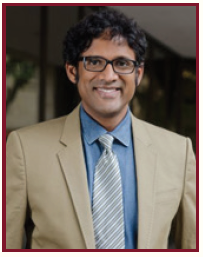 Dr. Rajagopal Raghunathan designed one of the world’s most popular online courses, a MOOC offered by Coursera entitled ‘A Life of Happiness and Fulfillment’. He is Professor of Marketing at the McCombs School of Business at the University of Texas. WUC interviewed him in the midst of his world tour sharing his experiences on how to develop and deliver successful educational content online. 1. What are the major limitations of the current education system in preparing youth for life in the 21st century? 2. Is it possible to shift from a subject centered to person/student centered learning? Click here to read more |
||||||||||||||||||

 |
|||||||||||||||||||
|
The future is ever alive and shaping events that have yet to occur. And it is also shaping the future of science. Anticipation is a widespread phenomenon present in and characterizing all types of systems, forcing a re-evaluation of the very idea of science. The present interplay between science and institutions is becoming a major impediment to a further development of science. The traditional, bureaucratic structure adopted by organizations and institutions (e.g. governments) derives from an understanding of systems that precedes the discovery of both complexity and anticipation. These structures work as if problems could be addressed individually and in a piecemeal way, with outputs systematically proportionate to relevant inputs, and without any thorough exploration of possible futures. Agency and power are central to how we construct choices and take decisions in complex, anticipatory systems. The First International Conference on Anticipation co-organized by University of Trento, UNESCO, WAAS-World Academy of Art and Science, WUC-World University Consortium and the Advanced Design Network at Trento in November 2015 succeeded beyond expectations. As a follow up, WAAS and WUC are now pleased to collaborate with the Department of Sociology and Social Research of the University of Trento, and the UNESCO Chairs in Anticipatory Systems to organize this workshop. |
SPECIAL SESSIONS Click here for more information. |
||||||||||||||||||
Previous Courses co-organized by WUCThe video recordings of the previous WUC-WAAS organized courses are available on the WUC website. Interested participants can apply for a certificate of participation by contacting the WAAS administrative team. |
|||||||||||||||||||
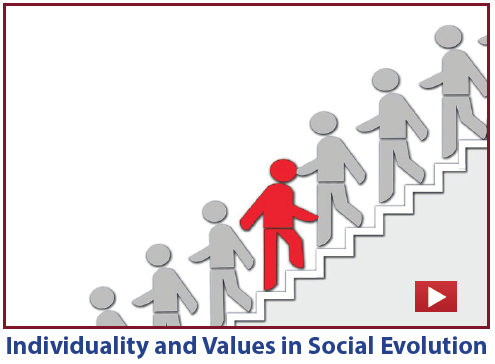
|
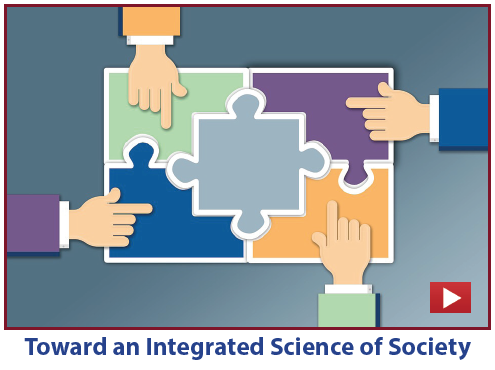
|
||||||||||||||||||
 
|
|||||||||||||||||||
|
Are all our mental perceptions and knowledge psychological constructions of reality? How do we see the limits of our conceptual system and move out of it? Is integral thinking the future of thinking? Is the mind as we know it a limited instrument? Can genius be learned? Can creativity be summarized by a formula? |
In order to answer these questions and become more conscious of the creative powers of the mind so we can more effectively utilize its extraordinary capacities and avoid its characteristic blind-spots, WUC has co-organized a lecture series on the subject of Mind, Thinking and Creativity. This program will be held at IUC, Dubrovnik, Croatia in November 2017. It will be the 8th in a series of similar events, and build on an earlier program on the same subject organized in April 2016. This program will be an exploration of the evolutionary development of our capacity for thinking, knowing, creating and accomplishing. It aims to broaden the range and enhance the quality of our thinking by making conscious the implicit assumptions and barriers that confine it within narrow boundaries and the characteristic types of errors and omissions they give rise to. It is an endeavour to enhance our capacity for rational, relevant, effective, independent and creative thinking, problem solving, decision making and accomplishment. Those interested in participating as a faculty member or a participant may contact the WAAS Admin team. The course will be open for registration to students shortly. |
||||||||||||||||||
Previous Courses co-organized by WUCThe video recordings of the previous WUC-WAAS organized courses are available on the WUC website. Interested participants can apply for a certificate of participation by contacting the WAAS administrative team. |
|||||||||||||||||||

